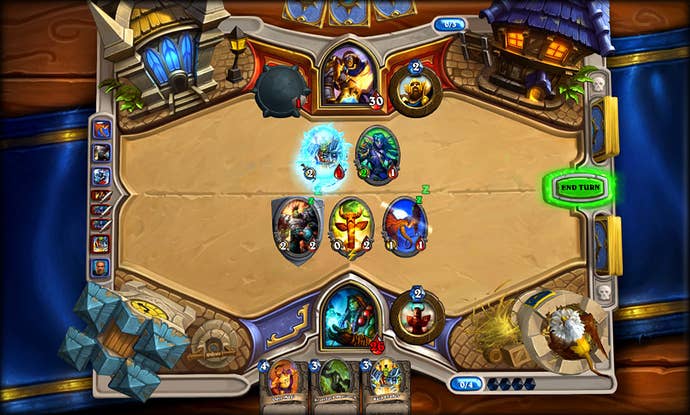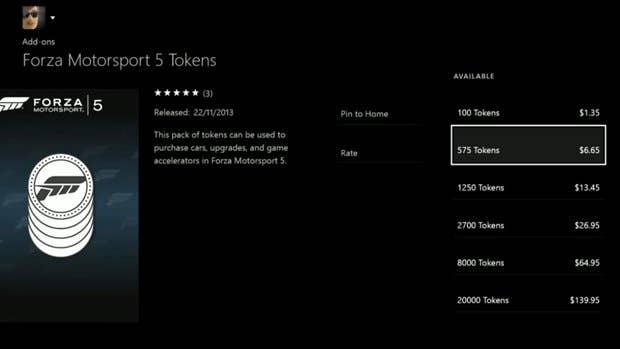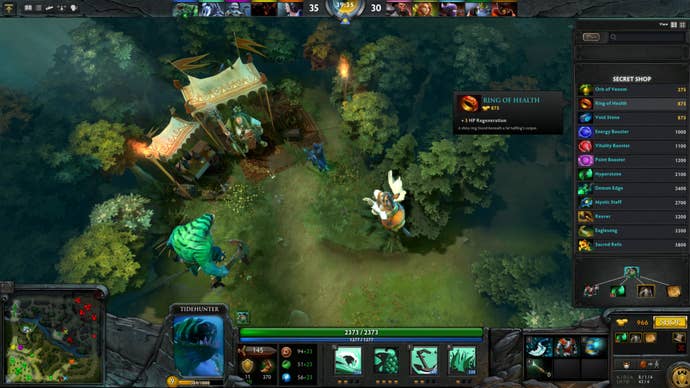2013 in Review: The State of Microtransactions and Free-to-Play
In the last couple of years, we've seen huge growth in free-to-play and the use of microtransactions. Pete, Jaz and Mike contemplate where the divisive business models stand at the end of 2013.
This article first appeared on USgamer, a partner publication of VG247. Some content, such as this article, has been migrated to VG247 for posterity after USgamer's closure - but it has not been edited or further vetted by the VG247 team.
Free-to-play, as analysts and other people with clipboards keep telling us, is here to stay. But there's a stark difference between good free-to-play and bad free-to-play -- and with full-price retail titles now starting to adopt microtransactional models directly cribbed from the free-to-play model, it's important we consider what works well and what is exploitative nonsense designed for nothing more than extracting money from unsuspecting players.
Pete, Mike and Jaz sat down to set the world to rights, and came up with a few good ideas along the way.
Pete Davison: I've had an interesting and eye-opening year when it comes to microtransactions and free-to-play. Prior to USgamer's launch, I worked for an industry-facing publication that reviewed mobile and social games from the perspective of how "effective" (i.e. potentially profitable) they were, and consequently had the opportunity to see some of the very worst practices in the whole business -- some of which have become distressingly commonplace.
The experience left me with something of a bitter taste in my mouth when it comes to free-to-play. A significant proportion of the people making mobile and social games are not concerned with entertaining players, you see; you don't hear words like "fun" thrown about when these people are talking about games -- you instead hear things like "active users," "engagement" and "conversion rates." It makes you question the reasons why they're making games in the first place -- and whether or not they deliberately compromise good game design in the name of extracting more money from people.
I do acknowledge that there are good examples of both free-to-play and microtransactions, of course, but before we get onto that, Mike, I'd like to hear your immediate thoughts on the state of free-to-play and the use of microtransactions as we close out 2013.
"A significant proportion of people making mobile and social games are not concerned with entertaining players. It makes you question why they're making games."
Pete

Mike Williams: I haven’t dug deep into mobile like Pete has, so my free-to-play and microtransaction experience is pretty much confined to PC and consoles. Free-to-play and microtransactions are really just another business model. They’re a tool used to put money into the hands of developers and publishers. Like any tool, they can be used well or used poorly.
Before, the norm was you paid $60 for a game and that’s it. Everyone loves the idea, but how many times have you paid for a $60 game only to received $30 or $40 worth of game? This is less of a problem on the PC with variable pricing, but on consoles $60 is the make-it-break-it price, regardless of if the content being sold lives up to that value. In fact, before I was reviewing game professionally, that’s how I personally categorized games: how much would I pay for this game? I’m sure a number of people do it to some degree. We wait for sales because while we like a game, we don’t like it at $60. That’s the pay-once equivalent of the gouging microtransactions.
On the opposite side of that idea are free-to-play or microtransaction-laden games that are tuned correctly. Hearthstone, Defiance and Guild Wars 2 are great games with heavy microtransactions. Warframe and DC Universe Online seemed perfectly fine and I don’t feel the need to pay just to progress. Even single-player titles like Ryse, Assassin’s Creed IV: Black Flag, and Batman: Arkham Origins have either microtransactions or DLC, but I feel their single-player experiences are complete.
Can they go wrong? Hell yes, but I don’t see the need to recoil from them like a vampire seeing sunlight.
Jaz Rignall: I have no problems with paying for games, or DLC, or subscriptions, or game-advancing microtransactions. I just have a problem with paying for them all at once. This is the rule I want to see put in place for video games:
A publisher can charge for any two out of these three things: The game. Game-advancing microtransactions. Downloadable content.
It’s a simple rule. I don’t necessarily like the idea of it, but I think it’s a decent enough compromise. If I pay for the game, and it has pay-to-play DLC - no microtransactions. If the game is premium-priced and has has game-advancing microtransactions (of which a monthly subscription also counts) - I get extra content for free over a period of months or even years (like an MMO). And if a game has microtransactions, and pay-to-play DLC, then the game itself is free.
How hard is that?
"This is the rule I want to see put in place for video games: A publisher can charge for any two out of these three things: The game. Microtransactions. DLC."
Jaz

I understand that companies need to make a profit, but when it begins to feel more like greed, it has to stop. Especially with digital distribution, which seems to be a dream business scenario for publishers. They get to sell their product at full retail price, despite having no physical components to pay for, no distribution costs, no warehouse storage costs, and no hefty retail cut to give up. Plus they can sell extra content for that game. And now we’re even seeing them charge extra if you want to play the game at an advanced rate. Of course, that’s totally optional - but in the case of Forza 5, progression has been slowed significantly compared to previous editions, making you have to work harder and longer to earn cars. Unless, of course, you boost your XP earning back up to the rate of the four prior Forza games by paying money.
Here’s another thing. In Forza 5, you can actually pay money to download DLC cars, and then pay money to buy in-game currency so you can buy and use that car -- in a game that you already bought in the first place. It’s a triple dip profit model.
The thing to remember is that this whole stinking model revolves around social gaming’s “whales.” (They're apparently called "superfans" now -- Pete) These are the roughly 2% of gamers who spend money way, way out of proportion to everyone else -- and in doing so make the bulk of the revenue for the publisher. Now this model is being applied to console gaming, and I’m interested to see what happens. I’m hoping the whale situation doesn’t happen here too, because if it does, that means publishers will ultimately care more about the tiny minority that will drive its profit than the vast, vast majority, who’ll get shafted by whatever gating/pay-to-play model the publisher decides to implement to milk those whales.
Admittedly, this is a worse-case scenario, but we’re already on the road there, and that’s why we’re talking about it now -- so we don’t go all the way down it.
Like I said, I don’t have problems with any gaming business models in principle. I pay a monthly fee for World of Warcraft, have bought its expansions and even paid for the occasional in-game item. But that’s a good value to me, because I’ve spent the best part of 9 years playing the thing on an almost nightly basis, and I’m rewarded with some sometimes spectacular free content updates. I’ve bought decks in Magic the Gathering games, downloaded car packs in Forza, and even paid money in mobile games so I could play immediately, rather than wait for my energy to build back up. They’re all fair and justifiable business models, and I’m happy to give up my cash to support the people who make and publish the game. But like I said at the beginning, when too many of these payment schemes are combined -- particularly in a premium-priced game -- the whole thing begins to stink of profit-mongering, and that’s what I’m against.
"This whole stinking model revolves around social gaming's 'whales.'"
Jaz

Pete: I like your model, Jaz. It'd be nice to see some companies stick to that.
I wasn't a huge fan of DLC when it started to hit the marketplace -- but that was largely because a lot of it really was exploitative, piecemeal content that should really have been collected together into a larger expansion pack. Today, we're in a situation where a lot of DLC is a lot more substantial -- Gearbox's stuff for Borderlands is a good example, though I wish they wouldn't have kept releasing it even after their "Game of the Year Edition" hit -- though there are still missteps. I find day-one DLC and retailer exclusive content to be a bit obnoxious still, for example; the fact that a whole character was excised from Mass Effect 3 in the name of day-one DLC is the reason I still haven't played that game, for example.
But I digress; we were talking about microtransactions and free-to-play rather than DLC.
As Mike quite rightly points out, there are companies who get either or both absolutely correct. The one I've been most impressed with recently is Path of Exile, a Diablo-like that you can play completely for free without restrictions, and whose only microtransactions consist of things that don't break the game at all: cosmetic effects, avatars, shared storage expansions. The developer Grinding Gear Games refers to them as "ethical microtransactions" and I'm all for that model continuing; between Path of Exile and other popular titles like Dota 2, can't we agree that taking this approach is a proven model by now?
"It's going to take time to refine the model and discover that offends people as little as possible. PC games seem to be somewhat ahead of the curve here."
Pete

The trouble is, of course, that dropping in a "Get More Gold" button is also a proven model thanks to the millions of people downloading mobile games and not even thinking about plowing hundreds of dollars into swelling their virtual coffers. The prevalence of this model -- which almost always rebalances the gameplay so not paying is not a practical option -- is pretty much the reason I don't play mobile games for fun any more, and I would hate to see console games go the same way.
As with DLC, though, I think it's going to take time to refine the model developers and publishers use for implementing microtransactions and discover something that offends people as little as possible. PC games seem to be somewhat ahead of the curve here; console platforms are going to take a while to catch up, and it's going to be a messy, ugly business while they sort it out.
Mike: Jaz has a damn good compromise, but getting companies to stick to that is impossible. Someone will always take it to the next level: a $60 game with microtransactions, paid DLC, a premium subscription service, and in-game ads. How close are Call of Duty and Battlefield to that nightmare future now? But if you’d ask those players who are deep within those games if they were being screwed over, what would they say? Would they agree, or do they find value in all of those items?
I hate the exorbitant price of the pets and mounts in World of Warcraft, but obviously there are a ton of folks out there who think they’re great. The problem with putting a line in microtransactions is there are a number of folks out there who will happily pay $5 to $10 for a digital hat. I mean, someone is paying EA for Real Racing 3. It’s all subjective, until you tune it far enough that everyone hates you. Are microtransactions just a problem the players will correct over time?
Pete: I'd like to hope so. The model as it stands right now just doesn't seem to be sustainable. It can't be. It can work well, but unfortunately the games that do do it well are somewhat in the minority right now. These need to be continually held up and celebrated as good practice for the industry.
We may already be starting to see some changes, though. Did you chaps see the recent news that some free-to-play devs are introducing spending caps for young players? These "limits" are still pretty high -- $50 a month for under-16s or $200 (!) a month for those between 16 and 19 -- but it's a start. Not only that, but official bodies in some territories -- such as the Office of Fair Trading in the UK -- are starting to take an interest in this growing business model, too; so much so that official guidelines on what is and is not appropriate can't be far off.
Do you think some sort of official controls on what companies can charge -- and what players can spend -- is the way forward? Or does this need to come from the industry itself rather than as orders on high?
"Someone is paying EA for Real Racing 3. Are microtransactions just a problem the players will correct over time?"
Mike

Mike: The industry generally bristles at the idea of regulation and consumer tend to as well. The assumption: if microtransactions messed you up, you obviously deserved it because you did something wrong. Which is partially true, except in the case of young players who have no idea about the value of virtual items.
Pete: Yeah, this is largely where the existing regulation is coming from: the worry that young players are either spending money they don't have -- or spending money their parents don't know they've put in the hands of their young 'uns.
Jaz: In the end, I think it’ll be left up to the consumer to decide. So far, we’ve already seen fierce player backlash against Microsoft and Turn Ten for what they did with Forza 5. In response, the game is being patched to increase earning rate and reduce car prices to be more in line with prior Forza games. That’s a good thing, and hopefully puts a cap on this kind of nonsense for a while. All the negativity that’s been whipped up by this whole affair has helped draw a big, fat, red microtransactional line that only the very foolish would attempt to cross again.
That said, nobody seems to be complaining much about Gran Turismo 6. The game is pretty much the same as others in the series, but it does have microtransactions that enable you to buy your way through the game if you want. It’s basically an option for the rich and lazy. It doesn’t impact the game in any way, so in that sense it’s fine by me. It almost follows my two out of three rule -- I buy the game and its downloadable content, but I don’t ever need to use its game advancing transactions. If that’s what microtransactions become -- the means for people with more money than time to pay more to play less -- then they can go ahead and knock themselves out.
"All the negativity that's been whipped up by Forza 5 has helped draw a big, fat, red microtransactional line that only the very foolish would attempt to cross again."
Jaz

Pete: So long as we're not left in a situation where microtransactions and free-to-play are the only option, I'll be happy. And there are enough outspoken developers -- particularly in the indie space -- who are vehemently against it to make me think that we won't get into a "one size fits all" situation. Because one size certainly doesn't fit all; free-to-play and microtransactions both work in the right context, but that's no reason to try and cram them into games where they have no place.
The industry is in a period of experimentation right now; hopefully in the next year or two, we'll pin down what works and what doesn't so that the right business models are applied to the right games. I can't say I'll be sorry to see the back of stuff like MechWarrior Online's $500 golden mechs, Angry Birds Go's karts that cost more than a retail console game and Candy Crush Saga's grossly overpriced powerups.

